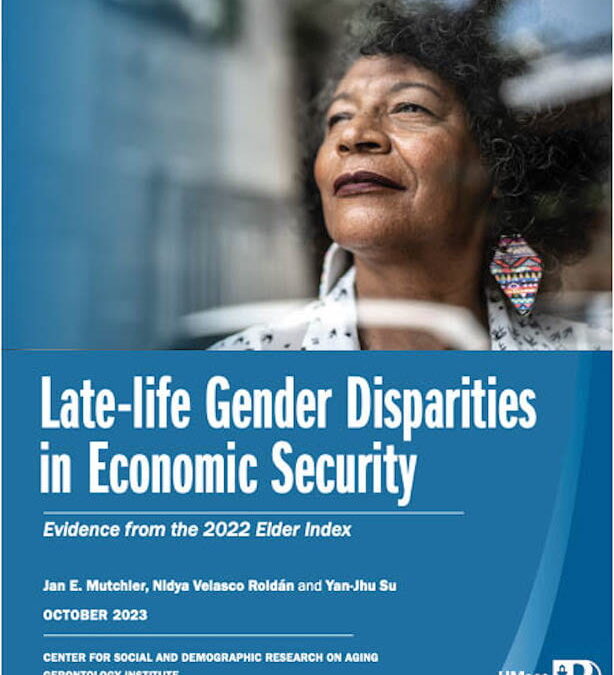
by James Fuccione | Oct 25, 2023 | Data and Reports
National averages suggest that half of older women living alone, along with 42% of older men living alone, have annual incomes below the Elder Index, which is a list of measures developed by UMass-Boston to measure economic insecurity among older adults. Now,...
by James Fuccione | May 10, 2023 | Data and Reports
UMass-Boston’s Gerontology Institute, building on their recent report with a national view that compares elder economic security, released a new update with a focus on Massachusetts. New estimates from the 2022 Elder IndexTM reveal that the cost of living in...
by James Fuccione | May 3, 2023 | Data and Reports
Despite modest increases in income and household assets for the “middle” 40% of older adults in the U.S., 80% of older adults in the U.S. would be unable to absorb a financial shock such as long-term services and supports, according to research by the LTSS...
by James Fuccione | Jun 16, 2021 | Data and Reports, News and Updates
New estimates from the 2020 Elder Index, developed by UMass-Boston’s Gerontology Institute, illustrate the elevated risk of economic insecurity experienced by older women, especially those living alone. National averages suggest that 54% of older women living...
by James Fuccione | May 5, 2021 | Data and Reports
Inclusion in the workplace, including older workers, can strengthen business resilience to provide a competitive advantage, according to a report and toolkit from AARP International called “Growing with Age: Unlocking the Power of the Multigenerational...


